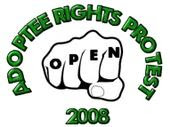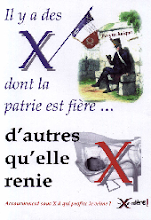 AUSTIN AMERICAN-STATESMAN
AUSTIN AMERICAN-STATESMANJanuary 13, 2008
Forever an orphan
Through his new memoir, William Holman, former Ransom Center librarian, confronted the sorrows of his boyhood, unearthed old secrets
Listen to this article or download audio file.Click-2-Listen
By By Brad Buchholz
At age 82, Austin publisher and librarian William Roger Holman has fulfilled the challenge of his lifetime — sifting through the secrets and the sorrows of his own story, an orphan's story set in Oklahoma during the Great Depression, and then putting it down in writing. But even now, Holman is not quite sure he really knows the boy in his own book.
"I can't judge my book," says Holman, caught up in a sparkle of spontaneous thought as he talks about his new memoir, "The Orphans' Nine Commandments." "The boy in the book is no longer me. The book is no longer me. I picked it up last week, and read it again, and said, 'Who wrote this?' "
Like so many orphans, Holman knows well what it is to wrestle with issues of identity. His memoir describes in vivid detail what it was to grow up in three orphanages — places with names like the Oklahoma Society for the Friendless and the West Oklahoma Home for White Children — and several foster homes. At the same time, it addresses the author's most fundamental questions: Who is my father? Where is my mother? Why this life in an orphanage?
And: What is my name?
During his childhood, Holman answered to at least six different names. For the first six years of his life, he knew himself as Roger Bechan — until a spring day in 1932, when the single mother who had been raising him abandoned him at an Oklahoma City orphanage and walked out of his life forever. Over the next decade, the foster homes and orphanages renamed him Bill Minter, Billy Hardt, Will Rogers, Roger Beacham and, at last, William Roger Holman.
His wife of 62 years, Barbara, knows him simply as Bill. But to this day, Holman wonders aloud what name he might have chosen for himself, given the choice. For most of his life — on the job, at business meetings, introduced to strangers at a dinner party as Bill Holman — he has heard a whisper from inside reminding him that his real name is Roger.
"I didn't set out to write a 'poor orphan' book. I wasn't a 'poor orphan.' I don't believe in the 'poor orphan' at all," says Holman, who moved to Austin 41 years ago and served as head librarian at the University of Texas' Humanities Research Center (now the Harry Ransom Center) from 1967 to 1985. "It was written as a boy's odyssey, his struggle to come of age out of adversity."
Within his memoir, Holman documents both the despairing and redeeming aspects of orphanage life. In one section, he describes sleeping at night with two boys on a urine-soaked mattress. In another, he tells the story of a cruel matron who dressed a bed-wetting boy in girl's clothes as punishment — and how the incident scarred the boy so deeply that he never recovered, committing suicide as an adult. In yet another, Holman describes the joy of building homemade kites out of materials scavenged from a cemetery trash heap. "Our homemade kites flew higher than store-bought ones," he writes. "Nothing felt better than a dream fulfilled."
Aside from its obvious historical value, Holman's book reflects a universal yearning for parental love and comfort. As a boy, the young orphan known as Roger Beacham was so desperate for a loving home that he shoplifted packs of Juicy Fruit chewing gum from a corner store near his orphanage and mailed them to one of his former foster families who would, in time, become his adoptive parents. It was as if to say, "Please, don't forget me."
You can still see a lot of boy in Bill Holman, even beneath all that white hair, even with all his talk about every day being a beautiful day once a person hits 80. The man is slender as a wick. He runs several miles each day. Holman's face has a youthful buoyancy to it; his pearl-blue eyes are bright with energy and eagerness.
Holman has a creative, curious mind. He's an avid sailor who once sailed solo to Bermuda in his own boat. Architecture is a big hobby, to the point that he designed and built his own home. Yet Holman's greatest passion might be book design. With his wife, he has run an independent publishing business — Roger Beacham, Publisher – for almost 50 years. "This Bitterly Beautiful Land: A Texas Commonplace Book," a collection of short Texas writings accompanied by Barbara Woodhead woodcuts (published in 1972), is prized by collectors to this day. Another of his books, "Of Birds and Texas," by Stuart and Scott Gentling, was described as stunning and magnificent when published in 1986.
Holman has surrounded himself with books throughout his life. As a boy, he smuggled "Little Blue Books" from the orphanage library and hid them under his mattress. Jack London and Robert Louis Stevenson taught him about the power of imagination and gave him the courage to write on his own. As a young man, he directed the Rosenberg Library in Galveston and the public libraries of San Antonio and San Francisco before UT System Chancellor Harry Ransom hand-picked him for the job at UT.
"I wrote the first beginning of "The Orphans' Nine Commandments" in April of 1945, when I was in high school," says Holman, which explains in part why the imagery of his memoir seems so fresh and exact. "My English teacher had assigned us to memorize the prologue of the 'Canterbury Tales.' I wasn't very good at memorization, so I asked if I could write a little story of my life as a substitute.
"A week later she came in and said, 'Bill this was well-written. But I don't believe a word of it.' "
Throughout his life, Holman has had a drive — "almost neurotic, really" — to discover the truth about his parents. Yet he was reluctant to share details of his childhood with those close to him. Holman's own sons were skeptical that his orphan name was Will Rogers. Or that he'd traded letters with the real Will Rogers and grieved the man's death.
"Basically, Bill didn't say a thing (about his childhood) to anybody except Barbara for years and years and years," says Harold Billings, director of the UT General Libraries from 1978 to 2003. Billings met Holman in the late 1940s when Holman was working at Pan American College, and the two have been close friends ever since.
"I didn't learn about his story until 10, 12 years ago. Frankly, I think he thought those roots embarrassed him. But at the same time, he knew he still needed to grapple with it somehow."
Holman spent a lifetime trying to make sense of his childhood, searching for secrets about his mother and father. He foraged through old legal documents, re-visited the orphanages, re-connected with his old foster families, petitioned in vain to have his original adoption file opened by the courts. There is still so much he doesn't know. But in 1993, he hit a gold mine through a series of telephone calls — and at last learned the identity of his true father, a surprise ending to his book.
Turns out Holman had a half-brother. And a half-sister. And suddenly, there was the need to write it all down, to undertake the writer's search, to try to make sense of it all.
"I look back with the advantage of maturity and am awed by the journey of the youngster who inherited the burden of his biological parents' wrong turns," he wound up writing near the end of his memoir, incorporating his own experience as a father of three sons. "I have never been able to comprehend how a man and a woman can come together, bear children, then abandon them knowingly and willingly without a justifiable cause. They discard their own kind, and when you toss your own child away you are bereft of a miraculous gift."
Holman has built himself a bright little cottage behind his home. "My paradise," he calls it. It's a place to write, to read, to reflect. The room is filled with rare books, architectural models, old black-and-white photos from his childhood. In sum, it tells the story of his life, the substance of his dreams.
There, beside his computer: a black and white picture of Will Rogers. Over there, on a drafting table: Little Blue books, just like the ones he read in the 1930s. And there: A vintage Erector set, the toy he most longed for — but never received — during his Christmases in the orphanage.
"I'm glad the book is finished," says Holman, soft afternoon light streaming through high windows on the cottage's vaulted ceiling. "It's frustrating, though, that I never found my mother. She's not in the 1920 Census. She's not in the 1930 Census. Barbara and I have gone through every name, all the different spellings of Bechan, and there's no trace of me or my mother.
"Maybe the Census skipped her. But one of the things I'm hoping for is that someone might read the book who knows something about my family and I'll learn something new."
On the other side of his search, William Holman has come to accept, reluctantly, that some aspects of his life will remain hazy, unresolved, even as he wonders. At the same time, he holds fast to meaning in more tangible things. Like the pack of Juicy Fruit gum that he keeps on his desk, next to the computer.
"Whenever I sell a book to someone at a book signing, I hand out a pack of gum and I say, 'This goes with the book. At no charge,' " says Holman, holding the pack of Juicy Fruit in his right hand. "People will take the gum, ask me what it means. And I say it means that all in life is not fate. The color of our hair, the color of our eyes: That's fate.
"But this," he says, raising the pack of gum to his eyes. "This means I have decisions to make for myself. And these were the decisions that that little boy used, to make something of himself, and to get out of that orphanage."
After so many years, Holman's voice still quavers just to talk about it. He swallows hard, sniffs back a tear. These are tangible things, too.
bbuchholz@statesman.com;
Link to article







No comments:
Post a Comment